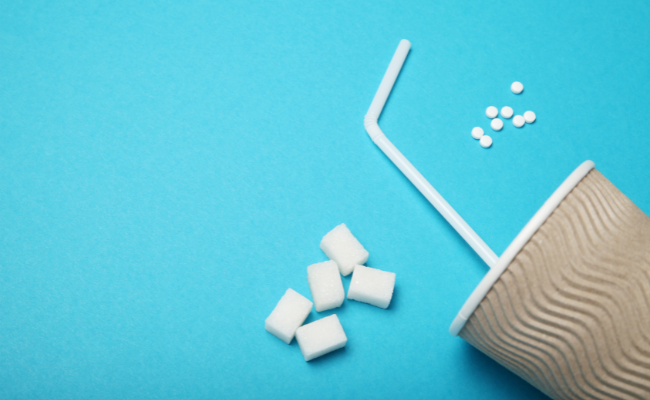Aspartame, the Silent Killer? W.H.O. Warns of Cancer Connection
Hold onto your soda cans, as the World Health Organization’s International Agency for Research on Cancer (IARC) announced on Thursday that aspartame, a common ingredient in Diet Coke and other sugar-free foods, is a potential carcinogen.
Could aspartame cause cancer? We’ll unveil the story behind the headlines on this ingredient lurking in your favorite fizzy drinks.
Understanding WHO’s Classification

Photo Credit: Twitter/IANS
The IARC, the agency responsible for identifying substances with cancer-causing potentials, uses a scale to assess and categorize them. Their studies showed results that Aspartame is in the 2B category.
It means that it is a “possibly carcinogenic” substance. You don’t want to take any risks, but what does it actually entail? It indicates limited proof of cancer in humans, particularly hepatocellular carcinoma, a kind of liver cancer.
However, it’s essential to note that the scale doesn’t measure the cancer risk associated with these ingredients. Furthermore, Dr. Francesco Branca from the WHO raises concerns about aspartame’s overall safety.
While each dose often used is considered safe, he advises more investigation into its possible effects. He suggests a novel option for consumers: opting for water instead of sweetened colas.
You may also like: 5 Sugar-Free Ice Cream Brands You Have to Try
Moreover, the health information manager at Cancer Research UK, Alice Davies, gives clarification on the classification system. Simply being categorized as a carcinogen doesn’t mean a greater cancer risk.
Aspartame Sweetener, Used In Soft Drinks, "Possibly Carcinogenic": WHO https://t.co/kKFwgMBtev pic.twitter.com/pUE1GjRGHE
— NDTV (@ndtv) July 14, 2023
Certain factors like dosage come into play. In addition, Davies also compared processed meat and smoking, both categorized as carcinogens, emphasizing the difference in their impact on cancer cases.
How Much Aspartame Is Too Much
To evaluate safe consumption limits, we rely on the Joint WHO and Food and Agriculture Organization’s Expert Committee on Food Additives (JECFA).
These agencies recommend that adults can safely eat up or drink up to 40mg of aspartame per kilogram of body weight every day. This guideline stays consistent with past recommendations.
So, how does that equate to your daily soda fix? If you weigh 70kg, you can safely consume 2,800mg of aspartame daily without crossing the safe boundary.
Let’s say a typical can of diet soda contains around 200mg of aspartame. You could enjoy up to 14 cans without surpassing the daily recommended limit.
You may also like: Vegetarian-Friendly Food: Sustainable and Ethical Choices
What Foods is Aspartame in?

Tabletop sweeteners:
- Equal
- NutraSweet
- Sugar Twin
Beverages:
- Diet Coke
- Coke Zero
- Sprite Zero
- Fanta Zero
- Pepsi Max
Gums:
- Extra
- Trident
- Wrigley’s
- Mentos gum
Other foods:
- Sugar-free Jell-O
- Sugar-free Royal Gelatin
- Mrs. Butterworth’s Sugar-Free Syrup
- Log Cabin Sugar-Free Syrup
What are substitutes for aspartame?
In addition, for those who choose to steer clear of aspartame, there are several available options. Here are some of the refreshing choices to consider:
- Kombucha
- Iced Tea
- Sparkling water
- Seltzer and Bitters
- Pomegranate Juice
- Club Soda
- Prosecco
Bottomline
While the World Health Organization’s declaration may spark concerns, it’s vital to know the nuances. Aspartame falls under the “possibly carcinogenic” category but with limited proof of cancer in humans.
The WHO’s JECFA safety protocols assure us that moderate consumption still stays within the recommended limits. It’s crucial to opt for informed choices and consider safer alternatives like drinking water.
For more updates on the latest news and interesting articles, stay tuned at Inquirer.net.

